By Keach Hagey, Berber Jin, Dana Mattioli, Josh Dawsey
On the first day of Donald Trump’s second presidency, Elon Musk learned in the White House that his arch-nemesis was about to hold a press conference with the president. He turned on the TV to see OpenAI CEO Sam Altman and a beaming Trump touting a $500 billion investment in artificial intelligence infrastructure called Stargate.
Despite being by Trump’s side for months, Musk was caught off guard by the news, according to people familiar with the matter.
After hearing about the White House's plan, Musk expressed anger to aides and allies, saying that Stargate's backers were not ready with the necessary funds. What annoyed Musk most was that Altman successfully navigated Trump's world through a series of carefully arranged meetings in Palm Beach recently and telephone communications with the White House, and kept himself, as the president's "first brother", in the dark about the plan.
Altman and Musk co-founded OpenAI in 2015, but the two fell out when Musk left OpenAI in 2018 after a power struggle. Musk launched his own startup xAI to compete with ChatGPT after its release, further deteriorating the relationship between the two.
The fight came to a head last week, when Musk, following the Stargate announcement, dropped his own bombshell: a $97.4 billion hostile takeover bid for the assets of the nonprofit that controls OpenAI. After joining forces a decade ago, they are now vying for control of the company that once bound them together, in one of the most high-profile and personally vengeful battles in recent business history. The outcome could affect everything from the future of a world-changing technology to who will help the new president set the nation’s tech agenda.
This article is based on interviews with more than a dozen people with knowledge of Altman and Musk’s years-long relationship and of OpenAI and Musk’s business and political decisions.
In many ways, Altman, 39, and Musk, 53, could not be more different.
While Musk was beaten and verbally abused as a child, Altman was a teacher's pet, whose parents often told him he could be anything he wanted to be. Musk was often difficult to get along with, while Altman tended to say what people wanted to hear. Musk was an engineer who immersed himself in the details of rocket and battery design, while Altman was a technology-obsessed intellectual who read widely in philosophy, science and literature and wrote papers on how society should be organized.
But the two men's desire for power was strikingly similar.
For years, Altman, a millennial, has looked to Musk, a Gen Xer, as a hero, a real-life Tony Stark who offered a counterexample to the technological stagnation in the U.S. that Altman railed against when he was president of the startup accelerator Y Combinator. Altman had met Musk a few years earlier through Y Combinator partner Geoff Ralson, who helped arrange a tour for Altman of Musk’s SpaceX rocket factory.
Altman’s stint leading Y Combinator from 2014 to 2019 made him a central figure in Silicon Valley. He was known for his unparalleled connections and the ability to help startups he invested in or punish investors who crossed him. Altman's special talent is raising money. He will wear his signature jeans and sneakers, sit cross-legged in a conference room chair, and then talk about a grand, exciting and sincere vision that investors seem unable to resist funding his projects.
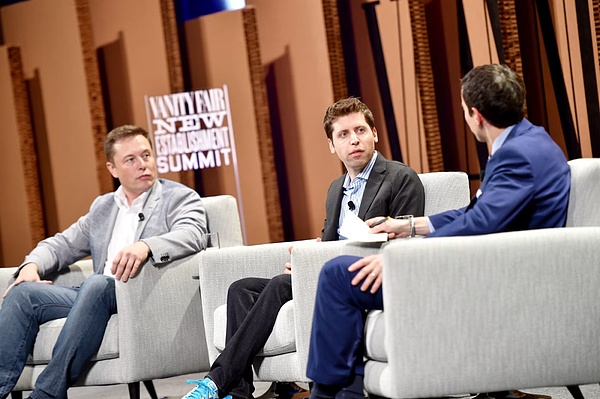
Musk (left) and Altman rarely appear together at the 2015 Vanity Fair New Establishment Summit.
In early 2015, Musk and Altman began having dinner together every Wednesday in the San Francisco Bay Area. Their conversations often took on apocalyptic overtones: how the world would end, how they would prepare for it, where they might have to flee to. One possible reason, they agreed, was AI becoming smarter than humans and perhaps uncontrollable.
That May, Altman suggested they create a “Manhattan Project” to develop artificial general intelligence (AGI) that would be as smart as humans at most tasks. They wanted to ensure that what the technology meant to humanity would not ultimately be determined by Google, which was far ahead in developing it.
At the end of that year, Musk and Altman teamed up to create a new nonprofit AI lab called OpenAI. It was backed by a whopping $1 billion in funding, with Musk pledging the lion’s share. Musk and Altman would serve as co-chairmen.
A few months before OpenAI was announced, Altman and Musk appeared together on stage at the Vanity Fair conference, both wearing ill-fitting suit jackets and Altman's sneakers as eye-catching as ever, and they agreed on various topics, including "nuking Mars" (with the goal of heating up the planet and creating an atmosphere).
In 2017, Altman and Musk's relationship began to unravel after OpenAI's researchers realized they needed far more money than the nonprofit could raise to develop advanced AI. According to internal emails included in court filings, the management team agreed to explore some kind of transition to a for-profit company. But they couldn't agree on how to structure it. Musk demanded majority control and the role of CEO, one of the emails shows. Altman succeeded in blocking his mentor, Musk, marking the beginning of the breakdown of their relationship. Altman persuaded another co-founder, Greg Brockman, to support him instead of Musk. Brockman also won over OpenAI's chief scientist, Ilya Sutskever, to support Altman. Brockman and Sutskever wrote in an email to Musk that because OpenAI was founded to "avoid AGI dictatorship," "creating a structure where you can become a dictator if you want seems to be a bad idea." Musk wrote back a few hours later, saying, "This is the last straw." In early 2018, Musk left OpenAI and Altman took over leadership.
For the next few years, OpenAI continued to quietly focus on research. Then on November 30, 2022, the company released a new product called ChatGPT. "This was an early demo that showed what was possible (there were still many limitations - it was very much a research version)," Altman wrote on X.
The research version turned out to be one of the most successful and transformative consumer technology products of the century, on par with the iPhone, Facebook, and TikTok. Like the rest of the world, Musk was shocked that AI had become mainstream and unhappy that he was not involved, and he began publicly criticizing OpenAI for moving too fast and not taking safety issues seriously. He signed an open letter calling for a six-month moratorium on AI development.
Within a few months, Musk launched his own for-profit open source AI company, xAI, but its technology and market influence lagged far behind OpenAI. Musk hoped to become a strong rival to Altman, but in fact, it was not even a trouble.
In 2024, Musk launched an attack on Altman through a new channel: the court. After suing OpenAI and its CEO in February of that year, Musk withdrew the lawsuit in June, filed again in August, and then amended it in November. His main allegation was that Altman allegedly violated their original agreement that OpenAI would put the public interest above profit.
Musk’s lawyers declared: “This breach of trust and deception is worthy of Shakespeare.” Altman said Musk was bitter because he left the company before it had achieved success.
As Musk’s legal attacks escalated, Altman became increasingly alarmed by Musk’s growing ties to Donald Trump, who he campaigned on and spent hundreds of millions of dollars in support of.
The OpenAI CEO, a lifelong Democrat, has said Trump’s principles represent an “unacceptable threat” to the United States. Altman’s company, which had little overlap with Trump and his circle of advisers, began trying to establish some kind of connection. Musk spoke at a Trump presidential campaign rally last fall. Musk proved to be a big obstacle. His hatred of the former protégé was so well known at Mar-a-Lago that those around Trump were wary of passing on Altman’s request. So Altman tried to work around Musk. In December, he approved a technical partnership between OpenAI and Anduril, a defense startup whose co-founder, Palmer Luckey, is one of the tech industry’s most prominent Trump supporters. Musk has expressed displeasure about the deal to some colleagues. More recently, Altman has tried to connect OpenAI with a member of the Trump family. He unsuccessfully lobbied for an investment from 1789 Capital, a venture capital firm with close Republican ties that is run by financier Omeed Malik and joined by Donald Trump Jr. in November. A spokesman for 1789 Capital declined to comment. Altman’s advisers told him that to avoid an unpleasant encounter with Musk at Mar-a-Lago, he should arrange meetings with Trump allies elsewhere in Palm Beach.
One of those meetings was with Howard Lutnick, co-chair of the presidential transition committee. Altman told him that OpenAI was committed to investing billions of dollars in U.S. data centers.
Altman described this as a possible signature move for Trump. The project, known internally as Stargate, has been in the works for years.
Altman first mentioned Stargate to OpenAI's board of directors in 2023 as a way to significantly increase the computing power the company can use to develop and operate AI.
He initially took the idea to Microsoft, asking the company to invest more than $100 billion. But five days after Altman was ousted as CEO in 2023, the tech giant hesitated.
Altman soon found partners. One of them was SoftBank, the Japanese conglomerate whose outspoken CEO Masayoshi Son is known for making big bets on charismatic entrepreneurs. Altman's friendship with Son dates back to when he ran the startup incubator Y Combinator.
The second was Larry Ellison, chairman of Oracle and an old friend of Musk’s, who was left out when xAI withdrew from a Texas data center project Oracle was working on. Altman agreed to let OpenAI take over the project. The project gradually developed into the foundation of Stargate.
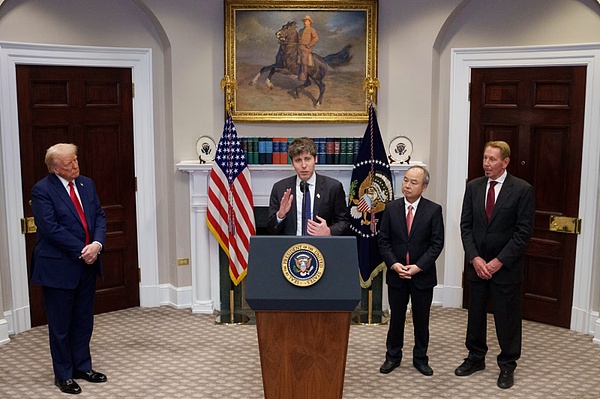
The day after Trump’s inauguration, Altman announced the Stargate project with SoftBank CEO Masayoshi Son and Oracle CTO Ellison.
Besides their deep pockets and technological prowess, Son and Ellison bring another advantage to Altman: Both have long been friends with Trump.
Last December, Son played golf with the then-president-elect at Mar-a-Lago and joined Trump and Lutnick in announcing his intention to invest $100 billion in U.S. infrastructure projects. Their press conference was effectively a preview of Stargate, but without any details — ensuring that Musk remained in the dark about OpenAI’s involvement.
Son also met with Ellison at his nearby estate.
Four days before the inauguration, Ellison helped broker a call between Altman and Trump to discuss the plan. As Altman outlined his grand plan for investing in AI infrastructure in the United States, Trump peppered him with questions about the construction process, drawing on his years of experience building hotels, casinos and golf courses.
Altman attended the inauguration, but he did not sit with Musk and other tech CEOs. He told others that he wanted to avoid any public encounters with Musk.
The next day, Altman and his partners came to the White House to explain their Stargate plan to Trump more fully. Trump told them that he wanted to make an announcement. Trump was pleased that they were planning to invest $500 billion during his term, a figure that was sure to make headlines.
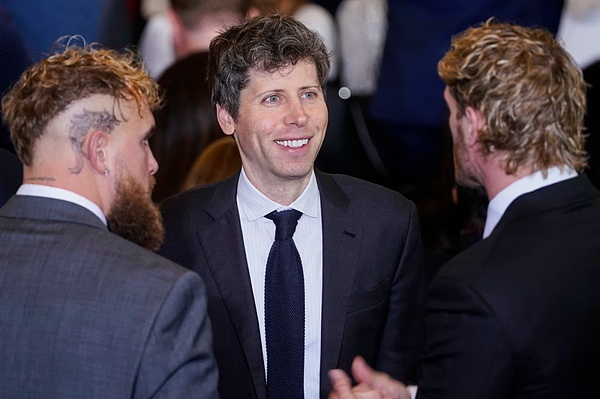
Altman (center), boxing star Jake Paul (left) and wrestler Logan Paul at President Trump's inauguration.
Announcing that figure was risky. Stargate needed outside funding, and key investors had yet to finalize their specific commitments. But Altman achieved his goal of catching Musk off guard.
The head of the newly created Department of Government Effectiveness was furious, complaining to aides that the partners didn’t actually have money ready for the project. He called the project “fake” on X, and some of Trump’s allies were shocked that Musk had publicly fallen out with the president.
Musk was already planning a counterattack, and had been considering a proposal to buy the nonprofit that controls OpenAI since early January. In mid-January, his team had begun reaching out to potential co-investors to prepare a takeover proposal.
Musk said the move was partly motivated by the fact that OpenAI was then in the process of transitioning to a for-profit company, and he believed Altman planned to undervalue the assets of the nonprofit, which would become an independent charity holding a stake in the for-profit company.
But Musk had a more fundamental message for investors: war with Altman.
Altman was attending the Paris AI Summit when The Wall Street Journal reported the news of Musk’s $97 billion acquisition proposal. He rushed to respond, telling employees in a Slack message that this was another of Musk’s tactics to try to undermine OpenAI.
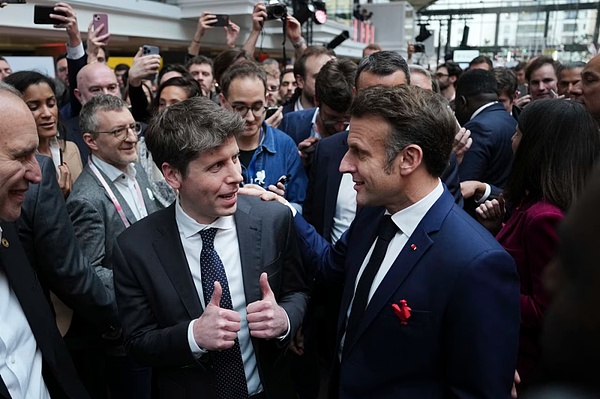
Last week, Altman attended the AI Summit in Paris with French President Emmanuel Macron.
He tweeted @Musk on X: "No thanks, but if you want, we can buy Twitter for $9.74 billion." This figure is far less than the $44 billion Musk spent to acquire Twitter in 2022.
Musk said later that week that he would abandon the acquisition if Altman kept OpenAI's non-profit status.
OpenAI said in a letter to Musk's lawyers last Friday that the company and its board rejected the $97.4 billion acquisition proposal.
“OpenAI is not for sale, and the board unanimously rejects Musk’s recent attempts to disrupt its competitors,” said Bret Taylor, chairman of OpenAI’s board. “Any potential restructuring of OpenAI would reinforce our nonprofit status and OpenAI’s mission to ensure AGI benefits all of humanity.”
Mark Toberoff, a lawyer for Musk, said OpenAI’s refusal “is not surprising.”
Musk has said he wants to pull the company back from the dangerous direction his co-founder has taken it. “Now is the time for OpenAI to return to being the open source, safety-first force for good it has become,” he said. “We’re going to make sure that happens.”
Altman responded with his trademark good-guy sarcasm: “Maybe he’s been insecure his whole life,” he said on Bloomberg TV. “I feel for him. I don’t think he’s a happy person. I do feel for him.”
Brothers become enemies
December 2015
Altman and Musk are also co-founders of OpenAI, a nonprofit organization dedicated to developing AI for the benefit of humanity.
February 2018
After a conflict over the direction of the company's development, Musk left OpenAI.
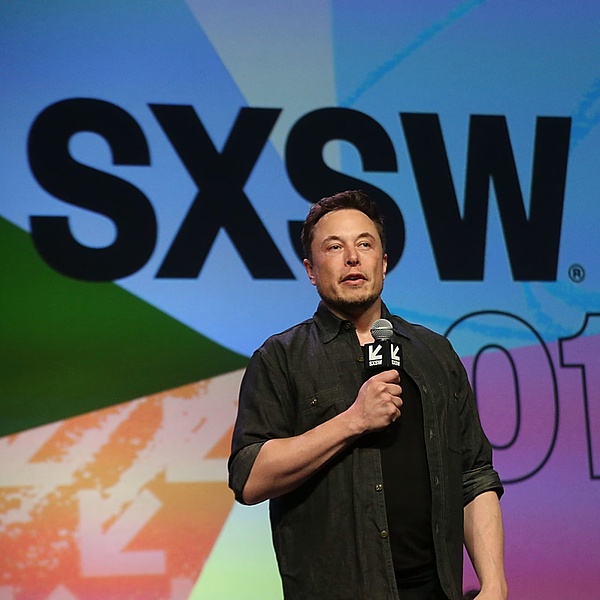
November 2022
OpenAI launches ChatGPT, a popular product that brings AI to the mass market.
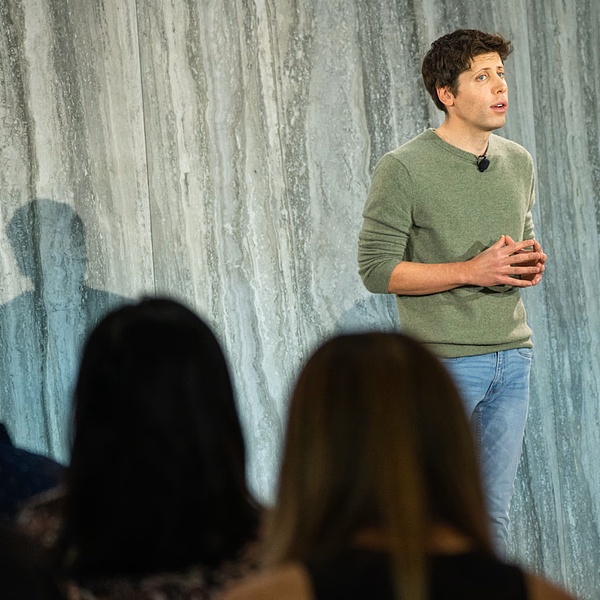
July 2023
Musk announced the establishment of a startup company xAI to compete with OpenAI.
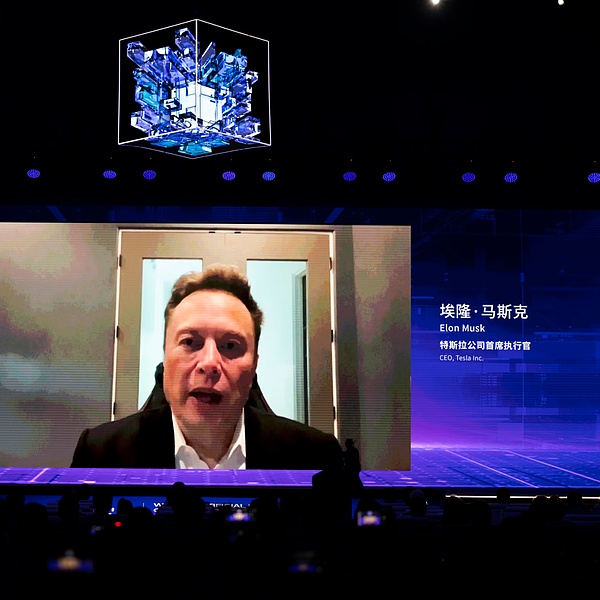
February 2024
Musk sued OpenAI and Altman, accusing them of betraying the company's original mission.
January to February 2025
After Altman announced the "Stargate" data center plan at the White House, Musk unexpectedly proposed to acquire OpenAI's assets.
 Weatherly
Weatherly











